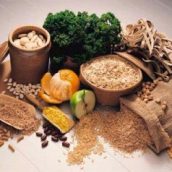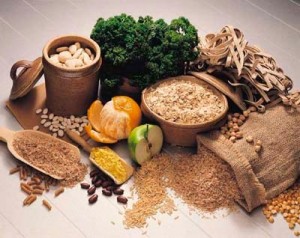Posted by unicorn jordan in Natural Treatments | 0 Comments
Traditional Chinese Medicine

Immunological Infertility Looked At From The Viewpoint Of Traditional Chinese Medicine
It is easier to understand the concept of what has come to be called Immunologic Infertility, when we look at its causes as described in Western Medical Science.
A womans ability to successfully retain the fertilized ovum and allow it to grow, depends upon a complex interplay of sophisticated immunologic adjustments designed to convert her Uterus into a host for the developing embryo and protect the developing fetus and its placenta against rejection.
Sometimes these mechanisms can go wrong; depending upon how and when this happens, the woman might experience recurrent miscarriages, infertility, or failure to conceive even after IVF.
An underlying immunological factor needs to be considered in all those cases of “unexplained infertility”, especially when a “blighted ovum” is repeatedly seen.
Western Science has thrown up a lot of evidence to show that anti-sperm antibodies can occur in both men and women and can lead to infertility. Anti-sperm antibodies are protein molecules that get attached to sperms and interfere with the sperm’s activity in any of several ways. They may immobilize sperm, cause them to clump together, limit their ability to pass through the cervical mucus, or prevent them from binding to and penetrating the egg.
Researchers have classified specific antibodies by (1) type viz. IgA, IgG and IgM and (2) the site at which they get attached to the sperm (its head, midpiece, or tail). It is seen that IgG type antibodies are most common in men while IgA type ate found in women’s cervical mucus and follicular fluid.
Binding to the head of the sperm is believed to interfere with attachment and penetration of the egg, while binding to its tail interferes with motility.
Other immunological causes involve women who produce antibodies that indirectly cause clotting in blood vessels leading to the developing fetus. The fetus is deprived of nutrients and dies in utero, which triggers an abortion.
It is now thought that between 20 and 25 percent of all repeated miscarriages are due to immunological problems.
Although several male as well as female immunological factors have been identified as causing infertility, treatment of this condition is still in its nascent stage in conventional medicine, which tends to look at problems in isolation and then proceed to treat them in similar manner.
Specific immune conditions causing infertility are not as yet adequately defined or understood and conventional treatment in suspected cases of Immune disorders is presently limited to use of Aspirin and Heparin to prevent clotting in fetal blood vessels and IVIg for controlling an immune response, often along with Steroids.
Traditional Chinese medicine, with its holistic viewpoint, though it does not mention “immunologic disorders” of course, covers a host of underlying conditions that result in infertility, and addresses what it calls the ‘imbalance’ that causes ‘disharmony’.
In the course of several years of my practice as a TCM Infertility Specialist, I have successfully tackled hundreds of so-called cases of ‘unexplained infertility’ with my custom-made Chinese herbal formulas and I suspect many of these might well have been cases in which there was a then unknown ‘immunological factor’ at work, a factor that got corrected when the underlying imbalance was removed!
Immune factors do not always manifest as physical symptoms but sometimes the following symptoms may be noticed:
Frequent miscarriages in the very early weeks
Bodyaches, PMS
Irritability and depressive episodes and /or panic attacks
Night sweats with sweating over the breast bone
Insomnia in the early mornings
Hormone levels show a decrease in every mid-cycle
Past history of hives or itchy skin
Thyroid disorders with the presence of anti-thyroid antibodies
These symptoms often translate into liver qi stagnation, and yin deficiency with heat in the heart and liver in TCM. These symptoms are further complicated by irregular menstruation and a saw-toothed, erratic BBT graph.
Several studies are now emerging about the use of Chinese herbs in this type of infertility.
www.pubmed.gov (a service of the US National Library of Medicine and the National Institutes of Health) quotes the following article about the Chinese herb Ziyin jianghuo:
“According to the microcosmic Syndrome Differentiation, immunological infertility is recognised as Kidney Yin Deficiency-Hyperactivity of Fire Syndrome. Zhibai Dihuang Pills, a recipe of Chinese medicinal herbs, was used to treat the infertile couples with antisperm and/or antizona pellucida antibodies in their blood serum. It was found that after the treatment, the antibodies were converted to negative in 81.3% of immunological infertile couples. All 8 cases of successful pregnancy occurred in 1-9 months after antibodies negative conversion and the negative status was maintained throughout the course of pregnancy.”
The Ministry of Health of Chinas published Materia medica now documents over ten thousand herbal substances, most of which have been found through years of usage and experimentation in specific conditions.
Chinese herbs are mostly used in combinations of 8 or more herbs (often upto 20 herbs) and are customized into formulas for individual patients. It is therefore usual to have different herbal formulas for patients in the same clinical setting. These herbs can be dispensed in various forms. Raw herbs are mostly used in infertility conditions and taken in the form of brewed teas.
A study of immunological male infertility by Chen Xiaoping used the traditional remedy Zhibai Dihuang Wan. A control group received cortisone and vitamin C. In the herbal treatment group, autoimmunity measures decreased, sperm became more viable, and 80 percent of wives became pregnant within six months. In the control group, 46 percent of wives became pregnant.
Each herb has distinct properties regarding its energy, flavor and movement in the body. It is related to different meridians of the body, too.
Four types of energies described in TCM are cold, cool, warm and hot and the five flavors or herbs are pungent, sweet, sour, salty and bitter.
Recent studies have demonstrated that traditional Chinese medicine could regulate the gonadotropin-releasing hormone to induce ovulation and improve the uterus blood flow and menstrual changes of endometrium. In addition, it also has impacts on patients with infertility resulting from polycystic ovarian syndrome, anxiety, stress and immunological disorders. Ref. Current Opinion in Obstetrics and Gynecology: June 2008 – Volume 20 – Issue 3 – p 211-215
Western medicine often makes use of the corticosteroid group of drugs, with all there attendant dangers and disadvantages, to treat immunologic infertility.
This alone, apart from several other reasons, should encourage the use of Traditional Chinese herbal medicine, to treat such Cases and I am sure that with increased awareness about this, more and more men and women facing infertility will opt for this line of treatment, in the not-too-distant future!
